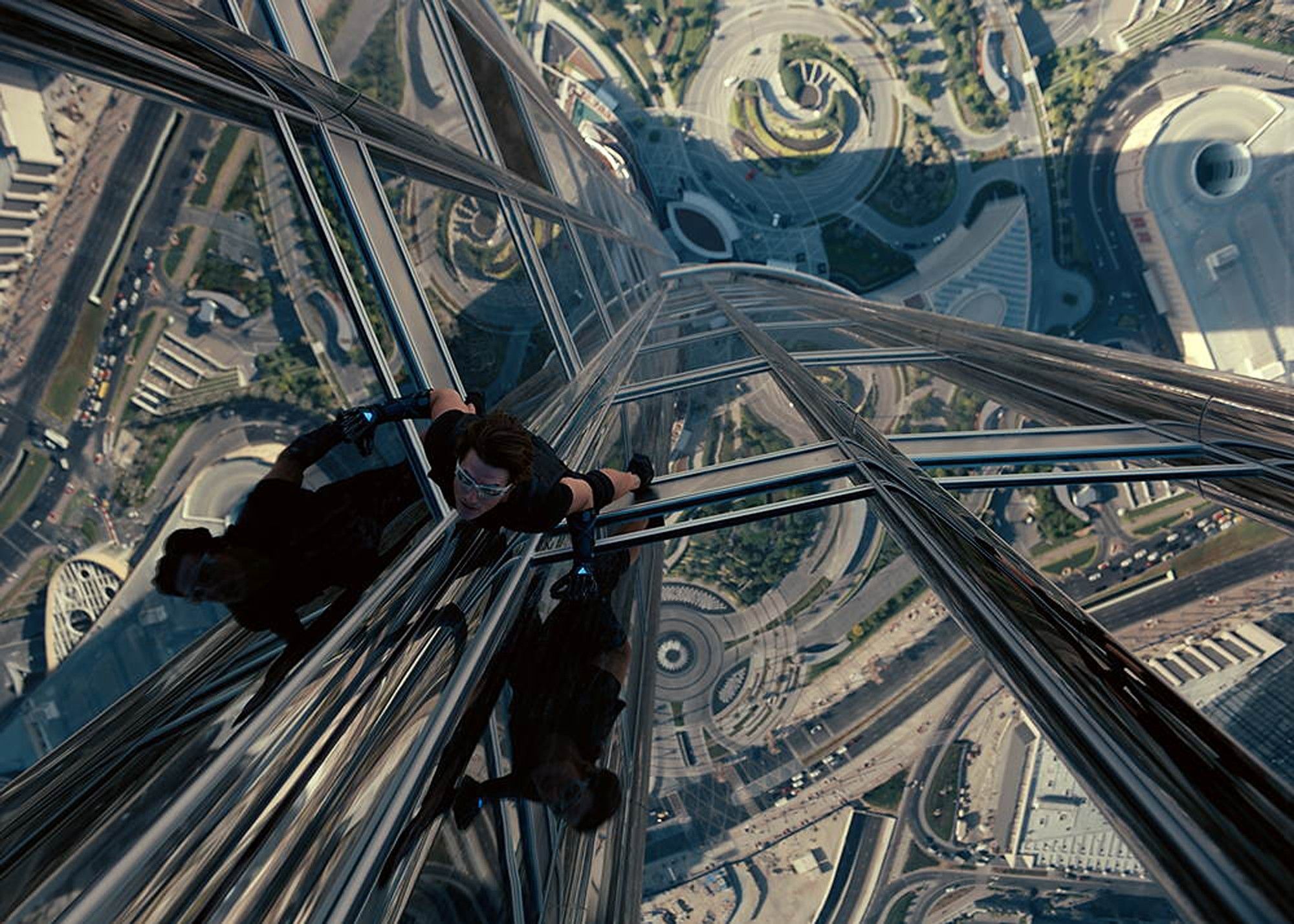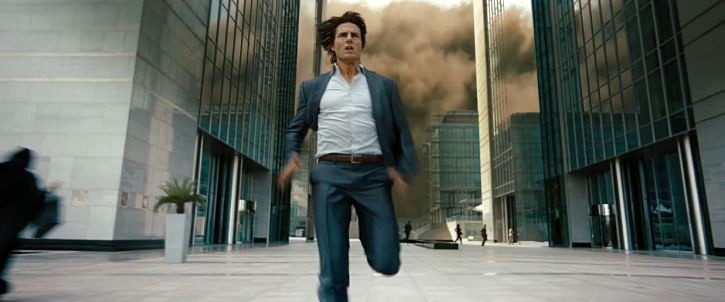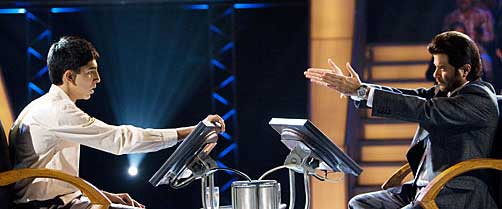
For those many of you out there who harbor reservations about Tom Cruise these days, and/or who were badly burned at either Mission: Impossible 2 (John Woo still owes me money) or Mission: Impossible 3, I can definitely see why you might be thinking of giving Brad Bird’s Mission Impossible: Ghost Protocol a pass. My advice is: Don’t. In fact, see this film in IMAX if you can, especially if — like me — you have any inclination towards vertigo (and, of course, a desire to see the first six minutes of TDKR — I caught ’em at the “Operation Early Bird” Smithsonian showing a week or so ago.)
Surprisingly — or perhaps unsurprisingly if you consider that Bird is the brains behind The Iron Giant and The Incredibles — Ghost Protocol is a pretty great action movie. It’s sleek, fluid, involving, and it’s almost unbelievable that this is Bird’s first live-action film. From its opening moments — as two IMF agents (Simon Pegg and Paula Patton) break Ethan Hunt (Cruise) out of a Russian prison — Ghost Protocol moves with a brisk confidence to (almost) the finish. And you’d have to go back fifteen years, to Brian DePalma’s original film, to find an M:I as entertaining. (Quite frankly, this one might even be better. I haven’t seen the first one in awhile.) In short, I can’t speak for Tintin yet, but if you’re an action aficionado at all, this film should get your money this Christmas — especially over Sherlock.
The plot doesn’t really need going over here. As you might expect, there’s an impossible mission, if Ethan Hunt and his team (Pegg, Patton, and eventually presumed future-Cruise replacement Jeremy Renner) choose to accept it — in this case, retrieving Russian launch codes from a deranged bureaucrat (Michael Nyqvist of the Swedish Dragon Tattoo films) hell-bent on global thermonuclear war. To even have a chance of accomplishing it and saving the world, this last remaining IMF team will have to travel to exotic locales, engage in espionage and misdirection, and utilize all the 21st-century tech and derring-do at their disposal. But wiil that be enough? Well, probably, but you never know…
In the end, I have three basic, and minor, nitpicks with Ghost Protocol. First, the third and final act (in India) is just a bit of a letdown after the dizzying heights (literally) of the first two, in Moscow and Dubai — but that speaks to the strength of the first 80 minutes more than anything. Second, Bird & co. occasionally forget to restrain their impulse to turn Simon Pegg’s character into Threepio — all comic relief, all the time. (An understandable inclination, but the humor can still be a bit broad at times.) And, third, the coda of the film — you’ll know it with the inevitable cameo by you-know-who — is just terrible in every way. It feels like it came from the bad Tom Cruise movie everyone feared Ghost Protocol would be. (Fortunately, it’s only five minutes of screen time.)
But other than those minor caveats, this is quite a good film. I would say 2011 has been a mostly disappointing year in movies, except for the fact that several potential schlockfests — Thor, Captain America, Rise of the Planet of the Apes — all happened to come out on the entertaining end. Ghost Protocol continues, and caps, that welcome trend, and goes down as one of the best action movies of the year. Now that he’s finished rehabilitating this once lamentable franchise, let’s hope Brad Bird chooses to accept more impossible missions in the years to come.


